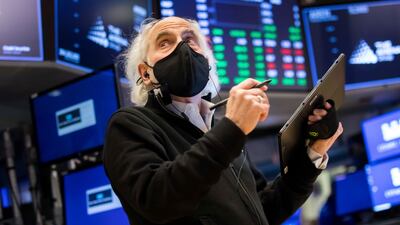Billions of dollars earmarked for takeovers by blank-cheque companies have piled up unused as the hot-then-not mania fades for speculative stocks.
Almost 600 special-purpose acquisition companies holding about $160 billion in trust are searching for something to buy, data compiled by Boardroom Alpha shows.
That marks a more than seven-fold jump for Spacs from the same period in 2020 and the clock is ticking against them. Spacs typically have a short window to either buy something with the money they raise — 12 to 18 months plus brief extensions — or else return the money to investors.
With about 88 active Spacs set to expire this year and another 318 facing deadlines in next year’s first half, there’s a “possibility of a logjam of deal closures”, Goldman Sachs analyst David Kostin wrote in a note.
Bill Ackman’s Pershing Square Tontine Holdings is the largest blank-cheque firm still looking for a target after it abandoned plans with Universal Music Group. The Spac raised a record-setting $4bn in a July 2020 IPO and faces an initial deadline in July.
Finding willing and worthy merger partners may be harder now that the market for Spacs is fizzling. The time crunch may push Spac sponsors to overpay for a deal to ensure they don’t lose money and beat the deadline.
The Ipox Spac Index, which tracks Spacs and the companies they take public, is down 40 per cent since mid-February 2021, while the De-Spac Index of companies that completed a merger has wiped out more than 60 per cent of its value.
The median de-Spac in Goldman’s separate universe dropped by 43 per cent in the past six months. The dismal performance can be explained partly by a low share float and the general lack of profitability, Mr Kostin writes.
About a fifth of de-Spacs were profitable over the past year and consensus forecasts show only 28 per cent will make money in the year ahead.

